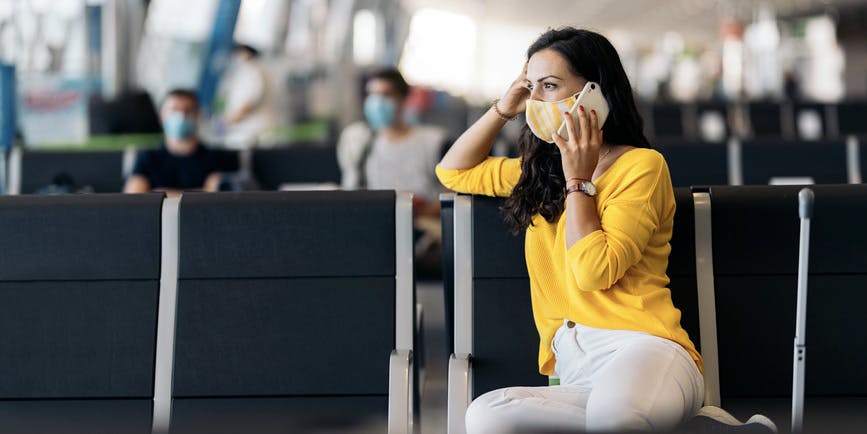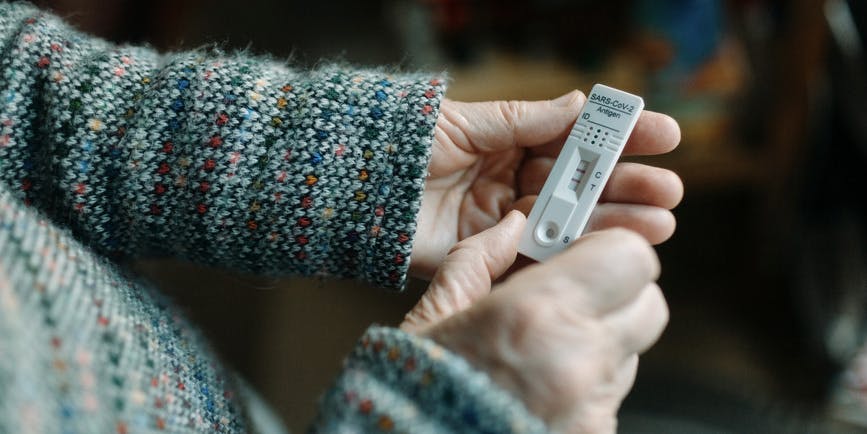
How many Covid boosters are there?

Topics
Key Points:
- In September 2023, the FDA and CDC updated Covid-19 vaccine recommendations based on newer circulating variants. These updated vaccines protect against Omicron subvariants like XBB.1.5.
- Three available vaccines from Pfizer, Moderna and Novavax are all safe and effective. These updated vaccines replace previously available Covid-19 vaccines.
- Most people can get the latest Covid-19 vaccine if it’s been at least two months since their last Covid shot. Adults and kids over age five can “mix and match” vaccines based on availability.
It’s only been a few years since the Covid-19 pandemic started—yet the virus has evolved quite a bit. Variants like Delta and Omicron have changed how the virus infects and spreads, and older vaccines may not work as well against the latest strains.
Thankfully, researchers have been working hard to meet the challenge.
The 2023/2024 Moderna and Pfizer vaccines were approved by the Centers for Disease Control (CDC) and US Food and Drug Administration (FDA) in September 2023. The CDC and FDA also approved an updated Novavax vaccine in October 2023.
These new vaccines are tailored to current circulating virus strains and replace all previous Covid-19 vaccines. But figuring out which shot to get (and when) can be tricky.
Dr. B has already covered the basics of how the Covid-19 vaccines are safe and effective. So here’s what you need to know about the latest Covid boosters. And if you do catch Covid-19? Dr. B can help you get a convenient, online prescription for Covid-19 treatments.
How the Covid-19 vaccine works
Vaccines teach our bodies how to fight a disease—without us getting sick with the disease. They work by triggering an immune response, including the creation of memory cells called T-lymphocytes. These memory cells stay in our body when an infection has cleared, ready to deploy if we encounter that illness again.
There are two main kinds of technology in today’s vaccines:
- mRNA vaccines (Pfizer-BioNTech or Moderna): These vaccines do not contain any parts of the SARS-CoV2 virus. (The virus that causes Covid-19.) Instead, they contain messenger RNA, which teaches our cells how to make a protein that triggers the proper immune response.
- Protein subunit vaccines (Novavax): This type of vaccine contains a small, inactive part of the SARSCoV2 virus called a spike protein. When the body notices the spike protein, it develops the tools it needs to fight that virus.
The Covid vaccine can’t make us sick or infect us with Covid because they don’t contain any active parts of the virus. Some people have side effects like fever or muscle aches after getting the shot. But that’s just a sign their body is developing an immune response.
Why do I need another Covid vaccine dose?
The updated vaccine provides better protection against newer strains of the virus. Also, protection from vaccines can sometimes decrease over time. The updated vaccine boosts your immune system, so you’re better protected against severe Covid infection.
How is the new Covid vaccine different from previous Covid boosters?
The first version of the vaccine was designed to protect against the original virus strain that causes Covid-19. Next came the 2022-2023 boosters. These were bivalent, protecting against the original virus and the Omicron variants BA.4 and BA.5. The latest vaccines protect against the virus strains circulating today.
Which variants does the new Covid shot cover?
The 2023/2024 vaccines protect against XBB.1.5 (also known as Kracken), a subvariant of Omicron. Despite the scary name, this variant doesn’t appear more severe than previous variants. However, some research suggests it might be especially good at evading immune cells. That’s why getting a vaccine specially formulated to target this strain is essential.
Which is the best Covid-19 booster shot?
There are three available Covid-19 vaccines: Pfizer, Moderna and Novavax. All three shots are equally safe and effective. Most people can get whatever vaccine is available in their area, even if they’ve gotten a different brand in the past.
Here’s what to know about the updated Covid-19 vaccines:
- Everyone over age five should get one dose of an updated Covid-19 vaccine.
- Children ages six months and older (up to four years), as well as people who have severely compromised or weakened immune systems, may need additional doses.
- The Novavax vaccine is approved for people ages 12 and older.
- Most adults and kids over age five can mix and match vaccines based on what’s available.
Let your provider or pharmacist know if you’ve never been vaccinated before. You may need additional boosters to be fully protected.
When should I get the updated Covid vaccine?
You can get your updated vaccine as long as it’s been at least two months since your last Covid vaccine. You can find the updated vaccines at pharmacies, retail stores and your medical provider’s office.
If you’ve had Covid in the last three months, your risk of re-infection is relatively low. So your provider may recommend waiting a few months to get your shot to maximize its effectiveness.
Can I get my Covid booster at the same time as my flu shot?
Yes! It’s fine for most people to get their flu and Covid shots during the same visit. The flu and Covid-19 are both serious respiratory illnesses. Getting vaccinated protects you from serious illness, hospitalization and death—especially at the height of flu season or when Covid-19 cases are ramping up.
Can I still get Covid if I get vaccinated?
Getting vaccinated helps protect you from getting Covid—but it’s still possible to get infected.
Luckily, the vaccine also reduces the chances of getting seriously sick or needing specialized care. There’s also some evidence that the Covid-19 vaccines can lower your risk of getting long Covid—a condition that happens when symptoms last longer than four weeks after an initial infection.
And if you do get Covid? At-home treatments, including Paxlovid and Molnupiravir, can help you recover faster and reduce the chance of hospitalization. These medications are beneficial for people who are at higher risk of severe infection, like older adults and people with certain health conditions.
Starting these medicines within five days of your first symptoms is essential—and earlier is better. Need help finding Covid-19 medications? Dr. B can help with that. Get started with a $15 online consultation. It only takes a few minutes, and we’re here when you need us—365 days a year.
Sources:
American Medical Association (2023). XBB.1.5 Omicron subvariant: Questions patients may have.
Centers for Disease Control and Prevention. (2023). Interim clinical considerations for use of Covid-19 vaccines in the United States.
Centers for Disease Control and Prevention. (2023). Stay up to date with Covid-19 vaccines.
Centers for Disease Control and Prevention. (2023). Understanding how Covid-19 vaccines work.
National Institutes of Health. (2022). Mixing and matching Covid-19 vaccine booster doses.
Watanabe, A., et al. (2023). Protective effect of COVID-19 vaccination against long COVID syndrome: A systematic review and meta-analysis. Vaccine.
Topics
Sign up for the free Dr. B newsletter for a weekly report on the latest in healthcare + research-based advice for staying healthy and mentally well.
Related articles









